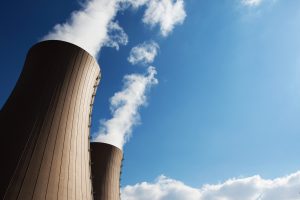Since January 2022 the Kyrgyz government has been considering the construction of a nuclear power plant (NPP) as a means to address the country’s growing energy needs. At the time, then-Kyrgyz Minister of Energy Doskul Bekmurzaev (later in 2022 he was charged with abuse of power and dismissed) and the general director of Rosatom, the Russian state nuclear power company, Alexey Likhachev, signed a memorandum of cooperation for the construction of low-capacity nuclear power plants in Kyrgyzstan. The agreement involves assistance in the development of Kyrgyzstan’s nuclear infrastructure and joint work to improve the qualifications of scientific and technical personnel in various areas of the peaceful use of atomic energy. The NPP’s construction was presented by some as an alternative to hydroelectric power plants.
However, such a decision comes fraught with peril, with the potential consequences far outweighing any perceived benefits. The risks associated with nuclear power are well-documented, and for a country like Kyrgyzstan, the dangers are even more pronounced.
The government should reconsider its stance on nuclear power plant construction in light of the clear risks.
First, it is crucial to take seriously Kyrgyzstan’s geological vulnerability. Kyrgyzstan lies in a seismically active region, making it highly susceptible to earthquakes and other geological hazards. The construction of a nuclear power plant in such an area significantly amplifies the risk of catastrophic events. Even with stringent safety measures in place, the threat of seismic activity cannot be completely mitigated, as evidenced by past nuclear disasters like Fukushima in Japan or Chernobyl in Ukraine.
Second, Kyrgyzstan lacks sufficient infrastructure and technical expertise to safely operate a nuclear power plant. Establishing and maintaining a robust regulatory framework, as well as ensuring the availability of skilled personnel for plant operation and maintenance, is essential for safe nuclear energy production. Without adequate resources and capabilities, the likelihood of accidents and incidents increases dramatically.
It is furthermore important to note the environmental impact of nuclear power plants and uranium mining. Radioactive waste produced by such power plants remains dangerous for thousands of years, posing a long-term environmental threat. The disposal of nuclear waste requires specialized facilities and strict protocols to prevent contamination of soil, water, and air. At present, Kyrgyzstan lacks a viable plan for the long-term storage and disposal of nuclear waste. In fact, Kyrgyzstan still faces issues related to uranium tails (remnants) from Soviet-era uranium mining sites. In a country like Kyrgyzstan, where natural resources are precious and ecosystems fragile, the introduction of nuclear waste or resuming of uranium mining could have devastating consequences for both the environment and public health.
Security concerns are paramount for Kyrgyzstan as well. The proliferation of nuclear technology raises serious security concerns, especially in regions prone to political instability and conflict. A nuclear power plant could become a target for terrorist attacks or sabotage, with potentially catastrophic consequences. Safeguarding nuclear facilities against such threats requires significant investment in security infrastructure and personnel, further straining the resources of the government.
Additionally, geopolitical dependence will grow as relying on a foreign entity like Rosatom for nuclear technology and fuel creates a dependency that could compromise Kyrgyzstan’s sovereignty and national security. Rosatom actively lobbies the nuclear agenda as green energy not only in Kyrgyzstan, but elsewhere too.
Nuclear power plants often face strong opposition from local communities due to concerns about safety, health, and environmental impact. This is true in Kyrgyzstan. Instead of imposing a nuclear facility on unwilling residents, Kyrgyzstan should prioritize renewable energy projects that have the support of local communities and stakeholders.
President Sadyr Japarov says uranium is not harmful, but in this he is blatantly misleading people. But unfortunately, voicing opposition openly has become more dangerous. The space for civil liberties is shrinking in Kyrgyzstan; oppression is increasing.
In conclusion, the construction of a nuclear power plant in Kyrgyzstan poses an unacceptable risk to public safety, the environment, and national security. Instead of pursuing this perilous path, the government should prioritize investments in renewable energy infrastructure and explore alternative solutions to meet the country’s energy needs. By embracing clean and sustainable energy sources, Kyrgyzstan can pave the way for a safer and more prosperous future for its citizens and generations to come.

































